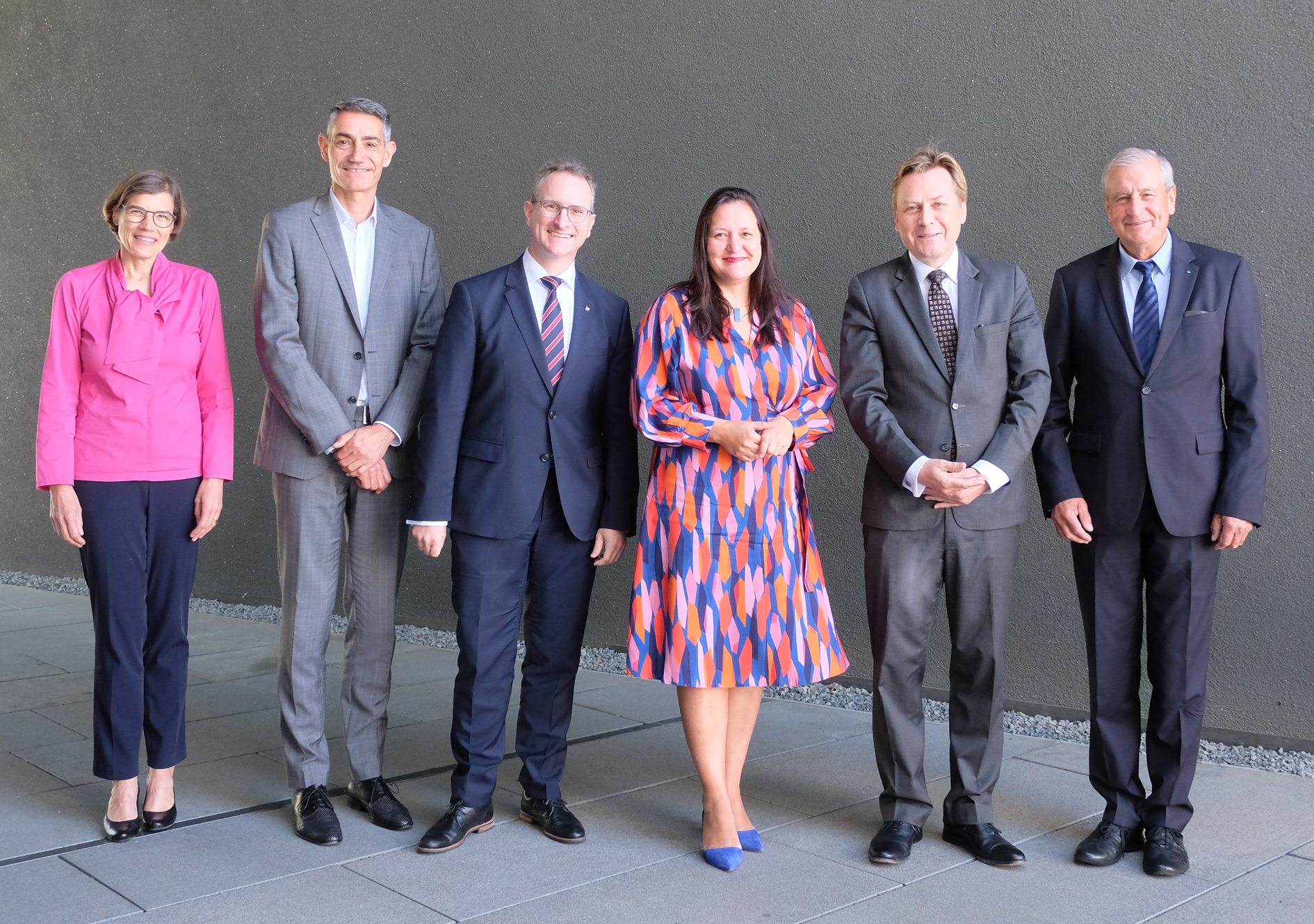Fraunhofer IAP celebrates 30th anniversary
Bio-based carbon fibers, flexible OLED displays, rubber for tires with reduced abrasion, artificial corneas and much more - the Fraunhofer Institute for Applied Polymer Research IAP is celebrating 30 years of successful material and process developments. Today, the institute plays a key role in shaping future topics such as bioeconomy, energy transition, mobility and personalized medicine. On September 1, 2022, the institute celebrated its 30th anniversary with a festive colloquium at the Fraunhofer Conference Center in the Potsdam Science Park with renowned guests from politics, business and science.

What began 30 years ago at the Institute of Polymer Chemistry (IPOC) of the Academy of Sciences of the GDR at the Teltow site is successfully continued today in Potsdam and at five other sites. From the very beginning, the focus was on sustainable polymers - a forward-looking decision, as it turned out. Bioplastics based on cellulose, starch or PLA, for example, are in greater demand today than ever before. And fiber research, which was already being pursued at that time, has in no way lost its importance - on the contrary: the bio-based carbon fibers developed at the Fraunhofer IAP are now gaining great interest among customers from industry.
Meanwhile, the institute's research and development activities continue to grow beyond the field of biopolymer research. Nanotechnological applications for medical diagnostics, fiber composites for lightweight construction, printed flexible solar cells, materials for biomedicine, function-integrated plastics and many other developments, the Fraunhofer IAP has established itself as a renowned partner for customers all over the world. Today, the institute celebrated its 30th anniversary with a festive colloquium.
"We look back on a rapid and successful development in which we have advanced topics such as sustainability, circular economy and diverse applications of new polymer materials. But we are also asking what is needed now to master the major challenges of the future. Personalized medicine, chemical recycling, and the application of artificial intelligence and digitalization in materials science are just some of the topics we will be working on intensively in the future," said Prof. Alexander Böker, who has been director of the Fraunhofer IAP since 2015.
Research Minister Dr. Manja Schüle: "Congratulations, dear Fraunhofer IAP: 30 years of applied polymer research, 30 years of successful transformation East, 30 years of top research in Brandenburg! The future technologies of the Fraunhofer IAP are all around us - in biotechnology, medicine, pharmaceuticals and cosmetics as well as in environmental and wastewater technology or the aviation and paint industries. Together with many partners, the Fraunhofer Institute for Applied Polymer Research contributes to the transfer of knowledge from research to industry and society as well as to structural change in Lusatia. With the topics of bioeconomy, lightweight construction and biotechnology, the Fraunhofer IAP is ideally positioned for the future. And with the Fraunhofer IAP, Brandenburg is ideally positioned for the future!"
"Innovations are crucial to maintaining the competitiveness of our economy and strengthening the the region’s econmy. More than ever, we need excellent research and intensive collaboration between science and industry for this purpose - in order to secure prosperity, social security and employment and to advance our society. As part of our innovation ecosystem, the Fraunhofer IAP is an important and valued partner. Especially with the development of new lightweight materials, the institute can make a decisive contribution to the completion of the energy and mobility turnaround and thus to achieving the climate targets," explained Prof. Dr.-Ing. Jörg Steinbach, Minister for Economic Affairs, Labor and Energy of the State of Brandenburg.
Prof. Alexander Kurz, member of the Executive Board of the Fraunhofer-Gesellschaft: "For more than 30 years, experts from the Fraunhofer Institute for Applied Polymer Research IAP have been driving forward the development of efficient and sustainable materials and technologies in close cooperation with our partners from politics, science and industry, and providing important impetus to successfully shape structural change. On behalf of the Fraunhofer-Gesellschaft, I would like to express my sincere thanks to the representatives of the federal states of Brandenburg, Saxony-Anhalt and Hamburg for their fruitful cooperation and forward-looking support. The commitment shown was and is crucial to setting future-proof standards in the field of innovative key technologies beyond state borders.“
From 1992 until today
The Fraunhofer IAP emerged in 1992 from the Institute for Polymer Chemistry (IPOC) of the Academy of Sciences of the GDR in Teltow-Seehof. Application-oriented polymer research was continued in the Fraunhofer facility, which was initially limited in time, with approximately 100 employees. After two years, the Fraunhofer IAP became an independent institute in 1994. In 2000, it moved its headquarters to Potsdam. Steady growth followed: in 2005 the "Fraunhofer Pilot Plant Center for Polymer Synthesis and Processing PAZ" opened in Schkopau; in 2012 the "Application Center for Innovative Polymer Technologies" in an extension building in Potsdam; in 2013 the "Processing Technology Center Biopolymers Schwarzheide", in 2016 the Fraunhofer facility "Polymer Materials and Composites PYCO" became part of the Fraunhofer IAP followed by the "Center for Applied Nanotechnology CAN" in 2018 and in 2021 the relocation of the research department PYCO to the new building for sustainable lightweight technologies in Wildau. Today, around 250 employees work at the Fraunhofer IAP at six locations. The institute has been headed by Prof. Alexander Böker since 2015 and previously by Prof. Hans-Peter Fink (2006 - 2015), Prof. Ulrich Buller (1997 - 2006) and Prof. Heinz Zimmermann (1992 - 1997).
Last modified: